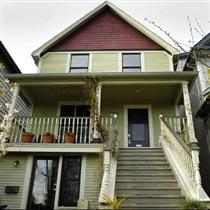‘Decade-long boom is over,’ be prepared for declining values
Sun

VANCOUVER – Homeowners in the majority of Canada‘s urban centres should be prepared for the possibility of housing price declines, according to a news release by researchers at the Sauder School of Business at the University of British Columbia.
Their study shows that with the exception of Toronto and Edmonton, houses in Canada‘s major cities are overvalued, priced up to 25 per cent higher than they should be to balance with rents – given interest rates, holding costs and historical rates of price appreciation.
“The decade-long boom in Canadian markets is over,” says Tsur Somerville, the study’s lead author and Sauder’s Real Estate Foundation of B.C. Professor in Real Estate Finance.
Titled Are Canadian Housing Markets Overpriced?, the study observes that housing affordability is a severe problem in some Canadian cities, limiting the ability of markets to continue to rise.
“House prices can correct through rapid declines, through longer and slower declines, or by staying essentially flat for a long period,” says Somerville, in the release.
Canada‘s more conservative lending practices have prevented the speculative excess and severe downturn experienced in U.S. markets. However, the study warns that the potential for price declines is greatest in cities that have a large supply of unsold inventory or a mismatch between the number of units and the number of households ready to occupy them. Recent data suggests that Vancouver is the most at risk in this regard.
To analyze whether housing prices are overvalued, the researchers looked at current house prices in nine major Canadian cities. They compared these prices to their equilibrium or balanced market levels, which is derived from the relationship between house prices and rents in a market when compared with cost of investing in housing. The study finds:
– Only in Toronto are prices in balance with rents
– In Halifax, Montreal, Ottawa, Regina and Winnipeg prices would need to drop by at least 20 per cent to be in balance
– Equilibrium in Calgary and Vancouver requires a 7 to 11 per cent drop in prices
– In Edmonton prices are actually below equilibrium, by 8 per cent

